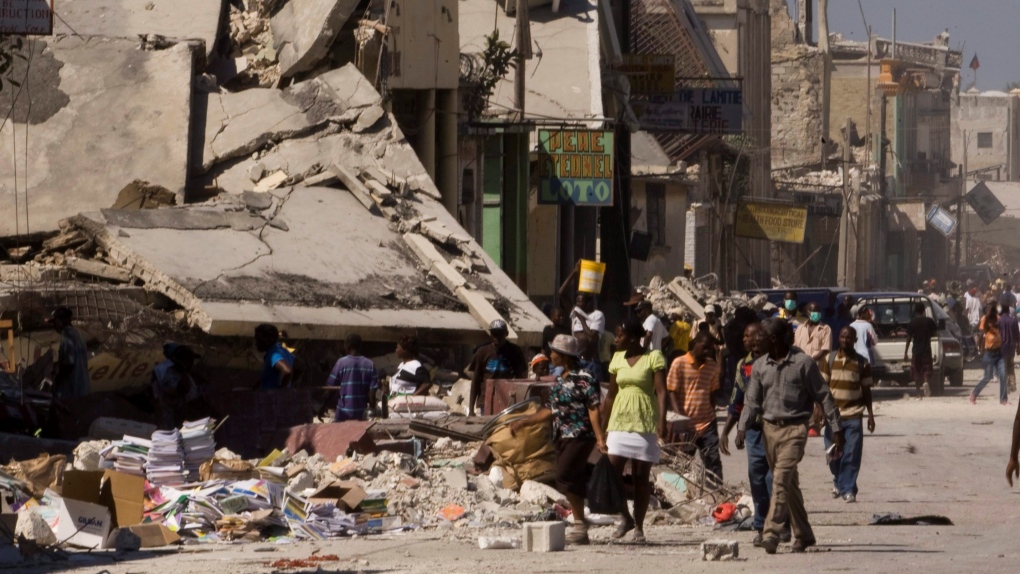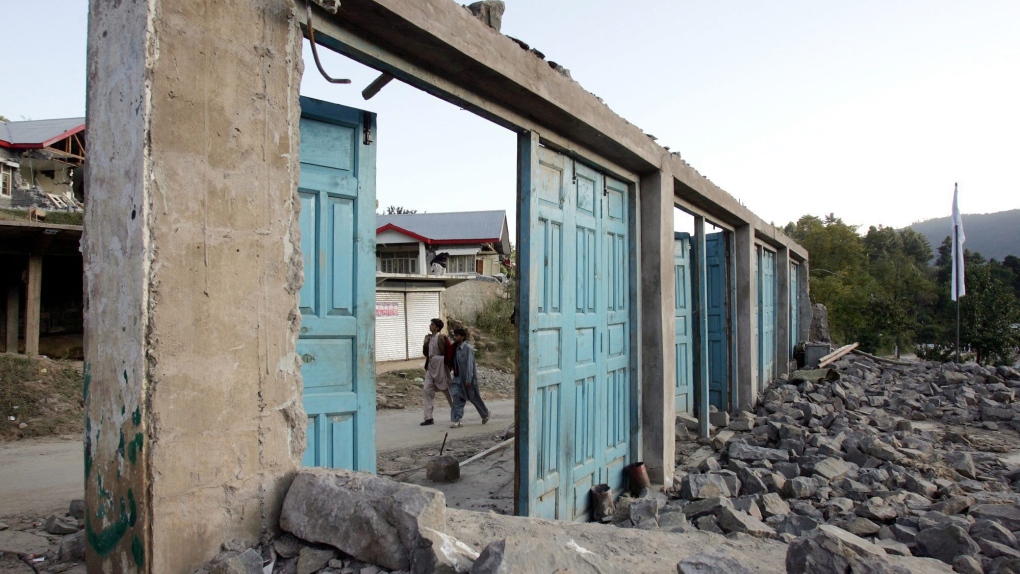A magnitude 7.8 earthquake shook Turkiye and Syria on Monday, killing thousands of people in the two countries. The death toll is expected to rise as rescuers working in cold and snow look for trapped people in the rubble of toppled buildings.
Some of the world's deadliest earthquakes since 2000:
June 22, 2022: In Afghanistan, more than 1,100 people die in magnitude 6.1 earthquake.
Aug. 14, 2021: In Haiti, a magnitude 7.2 earthquake kills more than 2,200 people.
Sept. 28, 2018: A magnitude 7.5 earthquake hits Indonesia, killing more than 4,300 people.
Aug. 24, 2016: A magnitude 6.2 earthquake in central Italy kills more than 300 people.
April 25, 2015: In Nepal, more than 8,800 people are killed by a magnitude 7.8 earthquake.
Aug. 3, 2014: A magnitude 6.2 earthquake near Wenping, China, kills more than 700 people.
Sept. 24, 2013: A magnitude 7.7 quake strikes southwest Pakistan, killing more than 800 people.
March 11, 2011: A magnitude 9.0 quake off the northeast coast of Japan triggers a tsunami, killing more than 20,000 people.
Feb. 27, 2010: A magnitude 8.8 quake shakes Chile, generating a tsunami and killing 524 people.
Jan. 12, 2010: In Haiti, a staggering 316,000 people are killed by a magnitude 7.0 quake, according to government estimates.
 People make their way through the rubble in the earthquake damaged downtown core Friday, Jan. 29, 2010 in Port-au-Prince, Haiti. THE CANADIAN PRESS/Ryan Remiorz
People make their way through the rubble in the earthquake damaged downtown core Friday, Jan. 29, 2010 in Port-au-Prince, Haiti. THE CANADIAN PRESS/Ryan Remiorz
Sept. 30, 2009: More than 1,100 people die when a magnitude 7.5 quake hits southern Sumatra, Indonesia.
April 6, 2009: A magnitude 6.3 quake kills more than 300 people in and around L'Aquila, Italy.
May 12, 2008: A magnitude 7.9 quake strikes eastern Sichuan in China, resulting in over 87,500 deaths.
Aug. 15, 2007: A magnitude 8.0 earthquake near the coast of central Peru kills more than 500 people.
May 26, 2006: More than 5,700 people die when a magnitude 6.3 quake hits the island of Java, Indonesia.
Oct. 8, 2005: A magnitude 7.6 earthquake kills over 80,000 people in Pakistan's Kashmir region.
 Kashmiris walk past the remains of shops destroyed by Oct. 8, 2005, deadly earthquake in remote town of Sudhan Gali about 200 kilometres (125 miles) from Islamabad, in Pakistani Kashmir, Thursday, Oct. 20, 2005. (AP Photo/B.K.Bangash)
Kashmiris walk past the remains of shops destroyed by Oct. 8, 2005, deadly earthquake in remote town of Sudhan Gali about 200 kilometres (125 miles) from Islamabad, in Pakistani Kashmir, Thursday, Oct. 20, 2005. (AP Photo/B.K.Bangash)
March 28, 2005: A magnitude 8.6 quake in northern Sumatra in Indonesia kills about 1,300 people.
Dec. 26, 2004: A magnitude 9.1 quake in Indonesia triggers an Indian Ocean tsunami, killing 230,000 people in a dozen countries.
Dec. 26, 2003: A magnitude 6.6 earthquake hits southeastern Iran, resulting in 50,000 deaths.
May 21, 2003: More than 2,200 people are killed in a magnitude 6.8 earthquake in Algeria.
March 25, 2002: About 1,000 people are killed in a magnitude 6.1 quake in northern Afghanistan.
Jan. 26, 2001: A magnitude 7.7 quake strikes Gujarat in India, killing 20,000 people.
------
Source: U.S. Geological Survey









































